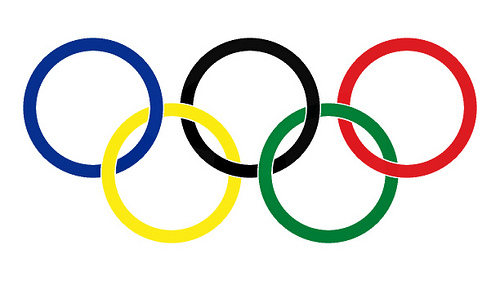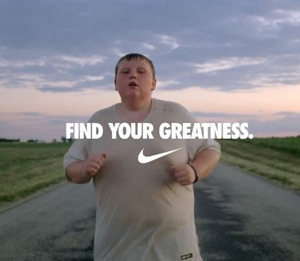Ephesians 4:1-16
For the past nine days, I have joined millions of people around the world to watch the Olympics, one of my absolutely favorite sporting events.
I love the Olympics. As a newspaper editor, I covered them from 1976 to 1996. As a fan, I’ve seen the games since 1968, although I have missed them since I went overseas on 2005. Every four years, I get caught up in them, summer and winter, and revel in them for hours on end. Ask my housemate and she will tell you: I live in front of the TV.
I love watching the big names like Michael Phelps and Gabby Douglas and Dannel Leyva, because then I see near perfection in a sport.
And I love seeing a 15-year-old child, swimmer Katie Ladecky, do the unexpected in the 800-meter freestyle the other night. She lead from start to finish, and the whole time, the commentators, one of whom is a medal-winning swimmer himself, kept saying, “She has to slow down! She has to pace herself!” But Ladecky didn’t, and she won her race decisively, almost beating the world record, because she doesn’t “know” that she needs to take it easy and swim strategically.
And then there are the special athletes for whom I cheer, the ones who compete despite the incredible odds against them. Men like Oscar Pistorius, the double-amputee from South Africa, the man called the Blade Runner. He was born without fibulae and drew up wearing prostheses. He’s a champion in the Paralympics and had to fight for the right to compete against able-bodied athletes. Watching him run the other day was inspiring!
If you read yesterday morning’s Washington Post, you know that these Games arethe first in which every country sent women athletes as well as men. Jacques Rogge, the head of the IOC, cracked down this year and told every country: “If you want to compete, you had better send some women as well.” For the first time in the history of the modern Olympics, there are women on every team.
Women like Afghan sprinter Tahmina Kohistani, whose Olympics lasted all of 14.5 seconds, when she ran – and came in last – in her 100-meters preliminary heat. Kohistani bettered her personal record in that race. And then there is Saudi judoka Wojdan Shaherkani, who competes in judo, the first woman ever to do so from her country. Her Olympics lasted all of 75 seconds before she was knocked down. What is amazing about both of these women is that they competed despite receiving death threats from Muslim fundamentalists.
And then … and then there are the underdogs, whom I love so much. Men like “Eddie the Eagle,” the British ski jumper who could barely ski jump in 1988. And “Eric the Eel” from Equatorial Guinea who barely knew how to swim and who had never even seen an Olympic-sized pool! Heck, he’d never seen a 25-meter pool. He did all of his training in a hotel swimming pool. Remember him? In 2000, he was in a preliminary heat with two other men who were disqualified for false starts, so Eric the Eel ended up swimming all the 100 meters all alone … and barely made it. I’m not kidding: He was dog paddling the last 10 meters and people thought he might drown!
Eddie the Eagle and Eric the Eel have been joined by “Hamadou the Hippo,” the rower from Niger who has only been rowing for three months – three months! – and yet still rowed his heart out in London.[1] He was last in his heat and was doing so poorly – heck, it looked like he was going to stroke out – that even the announcer was encouraging him: “You can do it!”
These athletes inspire me, truly they do, because they represent the Olympic ideal of faster, higher, stronger – even when they come to the competition on special exemptions.
But you want to know who really has inspired me in the last nine days?
Nathan Sorrell.
Do you know him?
Does that name ring a bell?
No?
Oh, you should pay attention to him. I’ve seen Nathan running in London perhaps four times now, and every time I watch him on TV, I think to myself: “Yes. This is truly inspiring.”
I’m actually not surprised you don’t know Nathan, because, well, because he isn’t exactly running in London, England. He’s actually running in London, Ohio.
And he’s not running in the Olympics, either.
You see, Nathan is the 12-year-old overweight boy running – OK, he’s rather trudging – in the Nike commercial that is airing during the Olympics. The commercial is fascinating. It opens up on a country road, and you hear, in the background smack, smack, smack (stamp feet on ground for each step), and if you listen closely, you can hear pant … pant as well. When he comes into view, you can see that his shirt is soaked in sweat and his face is bright red from the exertion … smack, smack, smack, pant, pant … and you can tellthat this “run” of his is just plain hard.
As you watch him trudge along, you hear a voice talking about greatness. Nike’s ‘Find Your Greatness’
“Somehow, we’ve come to believe that greatness is a gift reserved for a chosen few … for prodigies … or superstars. … smack, smack, smack, pant, pant … And the rest of us can only stand by watching,” it says. [And isn’t that the truth. We do believe that greatness is only for the special few. The rest of us? Well, we’re just plain old us, aren’t we?] … smack, smack, smack, pant, pant …
But, the voiceover says as Nathan keeps running, “You can forget that. Greatness is not some rare DNA strand. Not some precious thing. … Greatness is no more unique to us than breathing. … We’re all capable of it. … All of us.”[2] … smack, smack, smack, pant, pant …
The final shot? Nathan’s labored efforts, with the words “Find your greatness” superimposed over him.
“Find your greatness.”
If ever you wanted to find a modern translation of Paul’s letter to the Ephesians this morning, that’s it.
Paul is begging the Ephesians to “lead a life worthy of the calling to which you have been called.”
Or, as Nike puts it, “Find your greatness.”
Paul says that each of us – each and every one of us – has been given a gift by God, some, he says, to be apostles, some to be prophets, some to be evangelists, some to be pastors, some to be teachers.
All of us have gifts, and all of us, he says, are to use our gifts. That’s how we live lives worthy of our calling. We find our greatness.
Now, Paul is clear, in this letter to the Ephesians, that the only way to lead lives worthy of our calling is to love one another, not merely as we love ourselves – because, face it, far too often we don’t love ourselves very much, do we? – but to love one another as Christ loved us.
It’s a pretty tall order, this living our lives in love.
And frankly, far too often we think we can’t do it.
Oh, we know it can be done. All we have to do is look back across history to know that living a life of love is possible. All we have to do is name those who have been great examples of that love.
People like, oh, say, Mother Teresa.
Or Gandhi.
Or Martin Luther King Jr.
They all lived lives worthy of their calling, didn’t they?
But us?
How often do we say to ourselves, “I can’t do that.”
How often do we say, “I’m not good enough.”
Or, “I can’t love like that.”
Or, “I could never do that … it’s too hard … too stressful … I’d have to give up too much … go too far … suffer too much.”
But the fact is, my friends, we aren’t called to be Mother Teresa. Or Gandhi. Or Martin Luther King Jr. either.
We are called to be ourselves … to find our own greatness as beloved children of God, created in God’s very own image – living as God created us to live, in love and community.
Paul is begging us to figure out how we are going to live in love and community.
He is begging us to find our own greatness.
He’s not saying, “You have to be great like … (fill in the blank).” He’s saying, “Be the great person God created you to be.”
Sometimes that greatness will be feeding the hungry – even if it’s just one person at a time.
Sometimes that greatness will be caring for a sick friend.
Sometimes, it will be listening to someone who doesn’t need us to solve her problem, but to simply be present for her.
I don’t know what your greatness will be – heck, there are days when I have no idea what my greatness will be. All I know is that each of us has greatness in us.
Because God gives it to us.
Never, not in a hundred years, could we swim like Michael Phelps, or twist and turn through the air like Gabby Douglas. Most of us will never face death threats, like those brave women, Tahmina Kohistani and Wojdan Shaherkani.
Heck, most of us aren’t even good enough to be Eddie the Eagle or Eric the Eel or Hamadou the Hippo.
Most of us, when we are honest, are far more like Nathan Sorrell, trudging along a country road in the middle of nowhere … smack, smack, smack, pant, pant … . We’re not great athletes. We’re not going to compete in the Olympics.
We’re just trudging through our lives … smack, smack, smack, pant, pant … trying to do the best we can, trying to be the best we can.
But we don’t have to be the best ever.
We simply have to be the best we can be.
What is your greatness?
Because the Nike ad is right: We are all capable of greatness.
Now go find it!
Amen.
Sermon preached on the 10th Sunday after Pentecost, Proper 13, Year B, at St. Aidan’s Episcopal Church, 5 August 2012.
[1] Eddie “the Eagle” Edwards was the British ski jumping champion who couldn’t jump worth spit in the 1988 Olympics. Eric “the Eel” Moussambani was the swimmer from Equatorial Guinea who achieved fame with his flailing doggy paddle at the Sydney Olympics in 2000. And Hamadou “the Hippo” Djibo Issaka is the rower from Niger who got into this year’s Olympics not because he knows how to row, but because of a special exemption in order to promote rowing.
[2] Nike™ Commercial via Kim Painter, USA Today, “Nathan Sorrell, 12, inspires in Nike’s ‘Find your greatness’ ad,” http://yourlife.usatoday.com/health/healthyperspective/post/2012-08-02/nathan-sorrell-12-inspires-in-nikes-find-your-greatness-ad/817082/1




